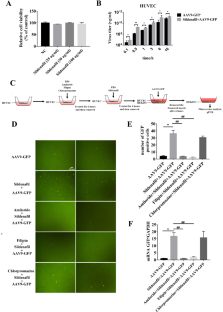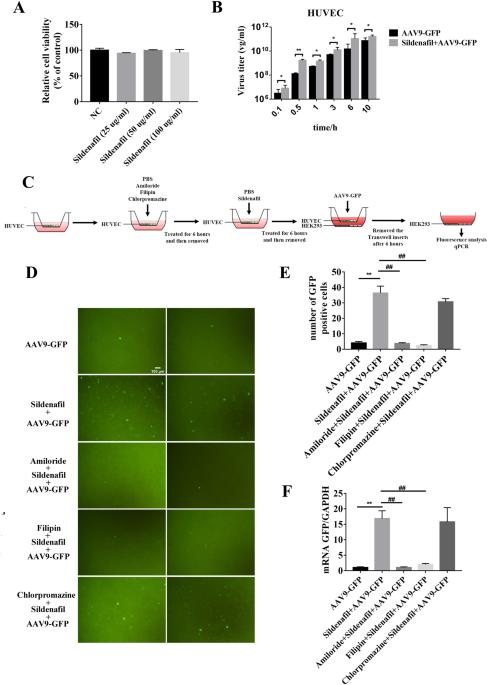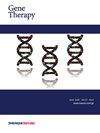西地那非可增加全身给药后的 AAV9 转导,并增强 AAV9-dystrophin 对 mdx 小鼠的治疗效果。
IF 4.5
3区 医学
Q1 BIOCHEMISTRY & MOLECULAR BIOLOGY
引用次数: 0
摘要
腺相关病毒(AAV)载体已被成功用于传递治疗罕见疾病的基因。然而,高剂量的AAV载体全身给药会引发一些不良反应,包括免疫反应、无症状的肝脏转氨酶水平升高和补体激活。因此,有必要改善 AAV 的转导并减少 AAV 的治疗剂量。最近,我们发现一种磷酸二酯酶-5抑制剂可通过调节洞穴和巨细胞吞噬途径显著促进AAV9的体外转导。将 AAV9-高斯荧光素酶(AAV9-Gluc)和 AAV9-绿色荧光蛋白(AAV9-GFP)静脉注射到预先服用西地那非的小鼠体内,血浆中 Gluc 和肌肉组织中 GFP 的表达量明显增加(P<0.05)。本文章由计算机程序翻译,如有差异,请以英文原文为准。


Sildenafil increases AAV9 transduction after a systemic administration and enhances AAV9-dystrophin therapeutic effect in mdx mice
Adeno-associated virus (AAV) vectors have been successfully used to deliver genes for treating rare diseases. However, the systemic administration of high AAV vector doses triggers several adverse effects, including immune response, the asymptomatic elevation of liver transaminase levels, and complement activation. Thus, improving AAV transduction and reducing AAV dosage for treatment is necessary. Recently, we found that a phosphodiesterase-5 inhibitor significantly promoted AAV9 transduction in vitro by regulating the caveolae and macropinocytosis pathways. When AAV9-Gaussian luciferase (AAV9-Gluc) and AAV9-green fluorescent protein (AAV9-GFP) were injected intravenously into mice pre-treated with sildenafil, the expressions of Gluc in the plasma and GFP in muscle tissues significantly increased (P < 0.05). Sildenafil also improved Evans blue permeation in tissues. Additionally, we found that sildenafil promoted Treg proliferation, inhibited B-cell activation, and decreased anti-AAV9 IgG levels (P < 0.05). Furthermore, sildenafil significantly promoted Duchenne muscular dystrophy gene therapy efficacy using AAV9 in mdx mice; it increased micro-dystrophin gene expression, forelimb grip strength, and time spent on the rotarod test, decreased serum creatine kinase levels, and ameliorated histopathology by improving muscle cell morphology and reducing fibrosis (P < 0.05). These results show that sildenafil significantly improved AAV transduction, suppressed the levels of anti-AAV9 IgG, and enhanced the efficacy of gene therapy.
求助全文
通过发布文献求助,成功后即可免费获取论文全文。
去求助
来源期刊

Gene Therapy
医学-生化与分子生物学
CiteScore
9.70
自引率
2.00%
发文量
67
审稿时长
4-8 weeks
期刊介绍:
Gene Therapy covers both the research and clinical applications of novel therapeutic techniques based on a genetic component. Over the last few decades, significant advances in technologies ranging from identifying novel genetic targets that cause disease through to clinical studies, which show therapeutic benefit, have elevated this multidisciplinary field to the forefront of modern medicine.
 求助内容:
求助内容: 应助结果提醒方式:
应助结果提醒方式:


